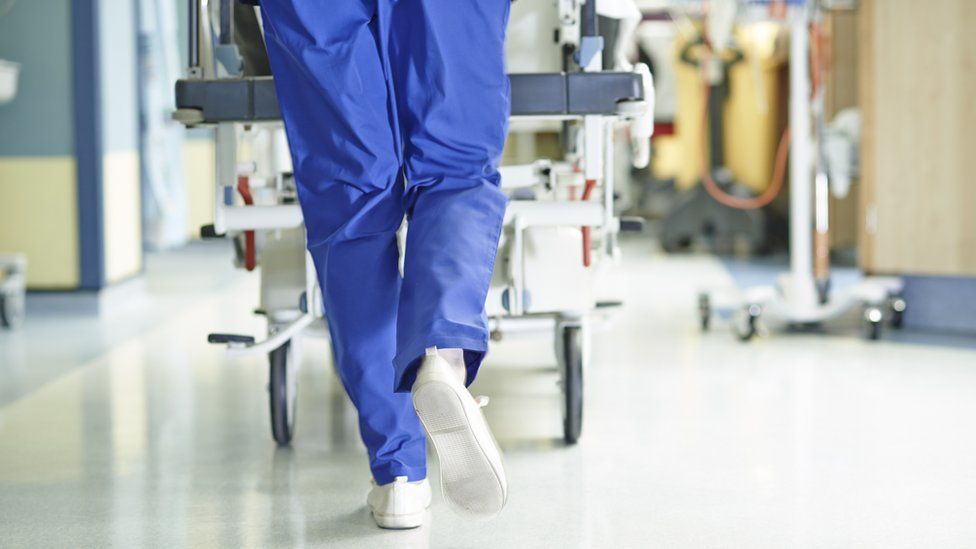ARTICLE AD BOX
 Image source, Getty Images
Image source, Getty Images
The British Medical Association has accused the government of "reckless" behaviour ahead of the results of a strike ballot by junior doctors.
The BMA's Professor Philip Banfield said the prime minister and health secretary were refusing to enter meaningful negotiations with unions.
The Department of Health and Social Care said it had met with the BMA and other unions to discuss pay.
BMA members are expected to vote in favour of strike action.
Professor Banfield, the BMA's chair of council, said that Rishi Sunak and Health Secretary Steve Barclay were "standing on the precipice of an historic mistake".
He accused the government of "guaranteeing escalation", adding that officials were "reckless" for thinking they could stay silent and wait it out.
He made his comments at a young doctors' conference on Sunday, telling attendees they deserved better and were not expensive for the expertise and skills they provided.
Around 45,000 members of the BMA have been balloted on strike action, with the result of the vote expected on Monday.
The BMA has already warned it will stage a three-day strike if there is a vote in favour of strike action.
Like recent strikes by nurses and ambulance crews, the dispute centres around pay.
The current pay agreement for junior doctors ends in March 2023 - and the government says increasing pay in line with inflation is unaffordable.
Professor Banfield also accused the government of "letting patients down", adding: "All NHS staff are standing up for our patients in a system that seems to have forgotten that valuing staff and their well-being is directly linked to patient safety and better outcomes of care."
A Department of Health and Social Care spokesperson said: "We hugely value the work of junior doctors and we have been clear that supporting and retaining the NHS workforce is one of our main priorities.
"As part of a multi-year deal we agreed with the BMA, junior doctors' pay has increased by a cumulative 8.2% since 2019/20. We also introduced a higher pay band for the most experienced staff and increased rates for night shifts.
"The Health and Social Care Secretary has met with the BMA and other medical unions to discuss pay, conditions and workload. He's been clear he wants to continue discussing how we can make the make the NHS a better place to work for all."

 2 years ago
57
2 years ago
57








 English (US) ·
English (US) ·